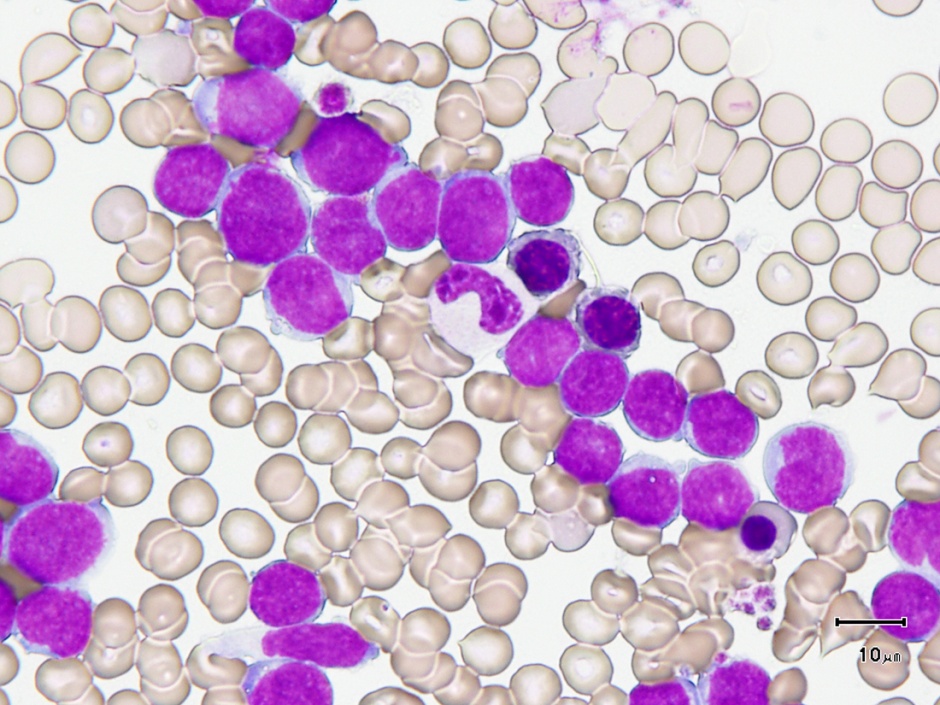Teaming up to translate AML discoveries into novel immunotherapy
Weill Cornell Medical College and Cellectis have entered into a strategic translational research alliance to accelerate the development of a targeted immunotherapy for patients with acute myelogenous leukemia (AML), a deadly blood cancer. The alliance will foster the development of Cellectis’ lead product candidate in AML, called UCART123.
The collaboration combines Weill Cornell’s broad expertise and resources in translational stem cell science and developmental therapeutics with Cellectis’ work in development and manufacturing of gene edited CAR-T cell product candidates, a special kind of immune cell that includes an antibody-derived receptor. The research will be led by co-principal investigators Dr. Gail J. Roboz, director of the leukemia program and an associate professor of medicine at Weill Cornell, and Dr. Monica Guzman, an assistant professor of pharmacology in medicine at Weill Cornell. Dr. Roboz is an internationally recognized leader in the field of acute leukemia and will design and implement clinical testing of UCART123 in patients with AML. Dr. Guzman is a renowned leukemia stem cell biologist who specializes in preclinical and early-stage testing to optimize the development of stem cell-targeted cancer drugs.
The alliance will seek to accelerate the development of Cellectis’ UCART123 in AML. Cellectis’ proprietary allogeneic CAR T-cell platform utilizes T-cells (immune cells) from healthy donors. The T-cells are engineered with a Chimeric Antigen Receptor (CAR), which enables them to detect specific proteins (antigens) expressed on malignant tumors. Large numbers of allogeneic CAR-modified T-cells are grown in the laboratory and then infused into a patient. The enhanced cells are designed to recognize and attack stem cells harboring the CD123 antigen, which is present on AML blast and stem cells. To enhance safety and minimize toxicity for patients, the company’s gene-editing process features customized control properties that seek to prevent the T cells from inappropriately attacking healthy tissues. Cellectis hopes to develop a cost-effective, “off-the-shelf” allogeneic CAR T-cell product, designed for efficient storage and distribution to patients around the globe.
Cellectis in April opened a new research and development facility in New York City, located in close proximity to the Weill Cornell campus.
“We are pleased to collaborate with Cellectis to develop and advance next-generation treatments for patients with this devastating form of leukemia,” said Dr. Laurie H. Glimcher, the Stephen and Suzanne Weiss Dean of Weill Cornell Medical College. “Cellectis’ proficiency in genome engineering and our complementary expertise in translational research will help us realize our common goal of improving human health in New York and around the globe.”
“CAR-T cells have shown remarkable promise in the treatment of acute lymphoblastic leukemia,” Dr. Roboz said. “Cellectis has interesting preclinical data on UCART123 and our alliance will seek to build on these findings to better understand the clinical potential of this therapy. Our patients are anxiously awaiting the start of clinical trials.”
“Weill Cornell offers unsurpassed expertise in translational research, with a wealth of leading-edge technologies and resources to help advance our pipeline of unique CAR-T product candidates,” said Dr. Mathieu Simon, executive vice president and chief operating officer at Cellectis. “We are excited by the prospect of working with Dr. Roboz, Dr. Guzman and other premier investigators in leukemia stem cell research.”
Weill Cornell’s Office of BioPharma Alliances and Research Collaborations negotiated the three-year alliance. In the program’s pre-clinical phase, Weill Cornell researchers will perform multiple analyses, including data mining of primary AML samples, immune profiling of AML patients and in vitro evaluation of allogeneically derived anti-CD123 CAR-T cells. In the alliance’s second phase, Weill Cornell and Cellectis will jointly develop protocols to facilitate early-phase testing, including phase 1 clinical trials.
“Cellectis believes the CAR-T platform has the potential to transform the way cancer patients are treated. We are confident that our broad, cross-discipline collaboration with Weill Cornell will foster creativity and speed in drug development for the benefit of clinicians and patients living with AML,” said Dr. André Choulika, chief executive officer of Cellectis.
The mission of Weill Cornell’s Office of BioPharma Alliances and Research Collaborations is to proactively generate, structure and market translational research alliances with industry in order to advance promising research projects that have commercial potential.
For more information, contact Larry Schlossman at las2041@med.cornell.edu or at 212-746-6909.




